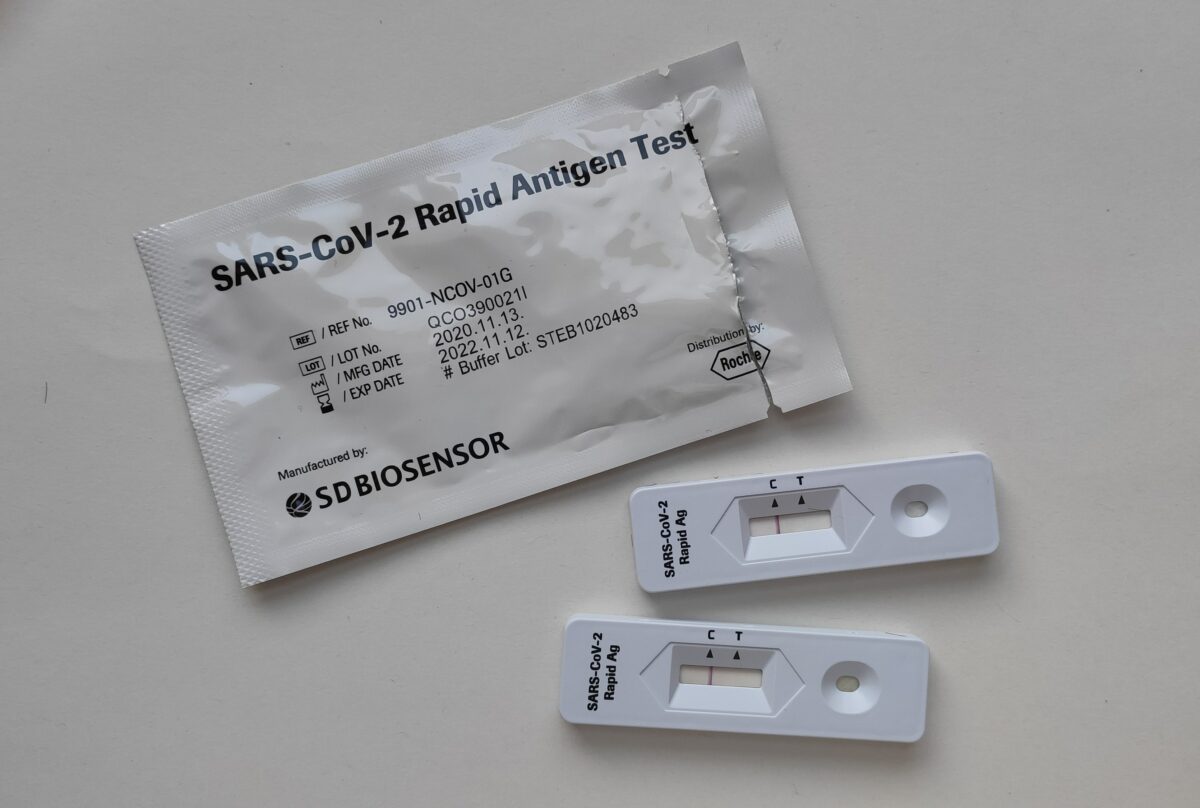With the recent outbreak on campus and the reliance on Rapid Antigen Tests (RATs) to determine if someone has COVID-19, Woroni has been contacted by students concerned about the accuracy of the university-issued RATs.
The ANU recently handed out free RATs to all eligible students and staff. RATs are a quicker, more user-friendly test for COVID-19 than the usual PCR tests. Doing regular RATs has become a key part of the ANU’s COVID-19 management strategy. The University has been providing All Test RATs to students, which have the highest possible sensitivity rating from the Therapeutic Goods Association (TGA).
However, this ease of use has potential drawbacks. RATs are less accurate, and do not return a positive result during all stages of infection. The TGA states that RATs “…may be used in the diagnosis of a SARS-CoV-2 infection in a symptomatic patient” as opposed to someone who is asymptomatic. RATs can also be damaged during storage, if they are kept somewhere too cold or too hot.
With concerns about the accuracy of RATs, Woroni has delved into their potential inaccuracies.
If you have COVID-19, when will the RAT be positive?
The producers of the All Test RAT state that you can have symptoms and return a negative, if in the early stages of infection. A PCR test, in contrast, can detect COVID-19 before symptoms emerge. Additionally, the producers state that “Negative results do not rule out SARS-CoV-2 infection…” especially if you are a close contact.
In essence, RATs are informative, but they aren’t the gold standard, like a PCR. A negative RAT with COVID-19 symptoms does not rule out the chance that you have COVID-19. This also means that if there are other indicators that you have COVID-19, such as symptoms or being a close contact. A negative test doesn’t preclude you.
How do you minimise the likelihood of incorrect results?
It is best not to smoke, drink or eat in the 20 minutes before you take the RAT to reduce the likelihood of an incorrect result. Additionally, avoid smoking, eating or drinking in the vicinity of the RAT while you wait for its result. It is also recommended that you thoroughly wash your hands beforehand.
What should you do if you have symptoms, but have a negative RAT?
According to the ANU and the ACT Health guidelines, if you test negative on a RAT but still have symptoms, you should get a PCR test as quickly as possible and during this time, you must self-isolate.
What does it mean if you get a negative RAT but a positive PCR?
If you test negative on a RAT but then a PCR from around the same time comes back positive, the odds are that the PCR caught the virus earlier in the infection. This would be most likely if you didn’t have symptoms when you took the RAT.
Which is the best brand of RAT?
All RATs sold in Australia meet TGA standards. However, the TGA ranks RATs into three classifications. Acceptable sensitivity means it has an accuracy over 80 percent, high sensitivity is above 90 percent and very high sensitivity is above 95 percent. The ANU-provided RATs have an accuracy of 98 percent.
A full list of the RATs available in Australia, with their sensitivity rankings, can be found here.
How likely is it that poor storage would damage the RATs?
Issues with storage would occur either when the ANU had them, or when you did. An ANU spokesperson stated that “…all RATs are securely stored in accordance with the directions given by the test’s manufacturer.”
If you feel that, because you’re a close contact or have symptoms, your RATs should be positive, and most of them are not, it’s possible that they’ve been stored incorrectly. RATs can be stored in the fridge, but should not be frozen, and should not be left in the sun.
For further questions, please consult the ACT Health COVID-19 website or the Department of Health COVID-19 page. Alternatively, call the ACT Health helpline at 02 6207 7244 between 8am to 6pm Monday to Friday, and 9am to 5pm on weekends and public holidays.
We acknowledge the Ngunnawal and Ngambri people, who are the Traditional Custodians of the land on which Woroni, Woroni Radio and Woroni TV are created, edited, published, printed and distributed. We pay our respects to Elders past and present. We acknowledge that the name Woroni was taken from the Wadi Wadi Nation without permission, and we are striving to do better for future reconciliation.
